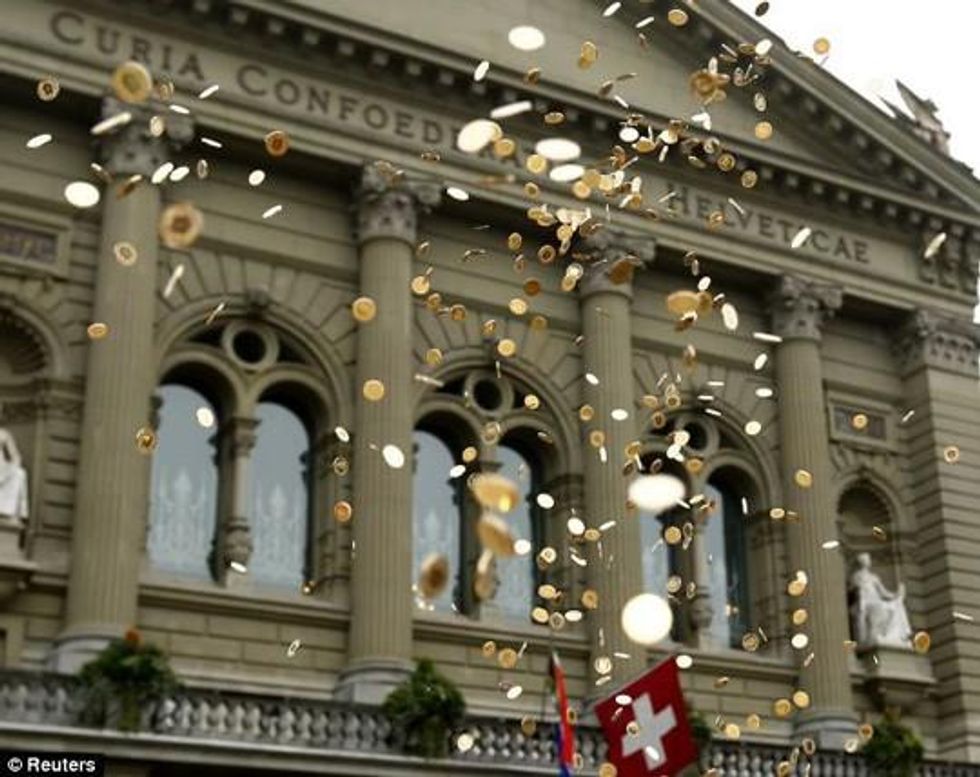There's a growing movement in Europe against pay inequality and the right for a basic income.
Switzerland is one of Europe's richest countries but does not have a minimum wage law.
But growing public activism over pay inequality since the 2008 financial crisis has already led to two referendum drives on CEO pay.
In March 2013, Swiss voters overwhelmingly passed one of the world's strictest controls on executive pay, forcing public companies to give shareholders a binding vote on compensation. Voters ignored the business lobby's claim that such curbs would undermine the country's investor-friendly image.
Next month, November 24, a separate proposal to limit monthly executive pay to no more than what the company's lowest-paid staff earn in a year, the so-called 1:12 initiative, faces a popular vote.
Now, on Friday, Swiss activists submitted over 130,000 signatures to the Swiss Parliament likely forcing another referendum - this one to create a new law guaranteeing all Swiss nationals a basic income of CHF 2,500 a month ($2,756 US).
Under Swiss law, citizens can organize popular initiatives and the Swiss Parliament must address or hold a referendum over any issue which has gathered more than 100,000 signatures.
After submitting the signatures to Parliament, the activists dumped a truckload of 8 million five-cent coins outside the Parliament building in Berne, one for every Swiss citizen.
Enno Schmidt, founder of Generation Basic Income Initiative, said that he believes the Swiss government should be concerned about the groundswell of support for income equality. He opines that the country's politicians are angry "because now they have to look into this initiative."
The date of the vote has yet to be announced.
* * *
# # #


